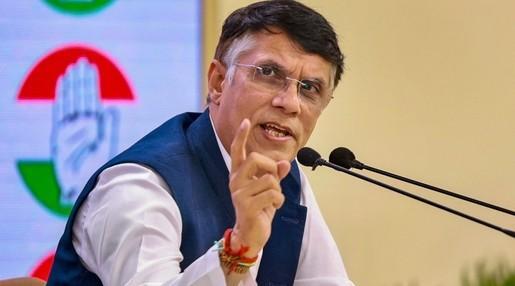
Why hasn’t PM Modi rejected Trump’s ceasefire claim: Congress
The recent remarks by US President Donald Trump that he had brokered a ceasefire between India and Pakistan have once again sparked a heated debate in India. Trump’s claim has been met with skepticism by many, with critics arguing that it was India and Pakistan that initiated the ceasefire themselves. Amidst this backdrop, Congress leader Pawan Khera has raised questions over Prime Minister Narendra Modi’s “silence” on Trump’s claims, asking why the PM has not rejected them even once.
In a tweet, Khera pointed out that this is not the first time Trump has made such a claim. “This is the 8th time President Trump has made this claim that he got Operation Sindoor stopped,” Khera wrote on X. What does PM Modi’s silence mean, Khera asked.
Khera’s question is a pertinent one. If Trump’s claims are unfounded, as many believe, then it is reasonable to expect that the Prime Minister of India would have a word to say about it. After all, the Indian government has a reputation for being vocal about its views on international issues, and Trump’s claims are certainly a significant development in the context of India-Pakistan relations.
One possible explanation for Modi’s silence could be that the Indian government is trying to maintain good ties with the US. Trump’s administration has been a significant partner for India in recent years, with the two countries cooperating closely on issues such as trade, defense, and counter-terrorism. India has also been a key player in the US’s Indo-Pacific strategy, and the two countries have worked together to counterbalance the growing influence of China in the region.
Another possibility is that Modi is trying to avoid controversy. Trump’s claims may be seen as an attempt to take credit for something that India and Pakistan had already agreed to do. By not rejecting Trump’s claims, Modi may be trying to avoid a messy diplomatic situation and instead focus on more pressing issues.
However, some critics argue that Modi’s silence is a sign of weakness. By not rejecting Trump’s claims, Modi may be sending a message that India is willing to compromise its sovereignty and allow foreign powers to dictate its actions. This could have long-term consequences for India’s relations with its neighbors and its reputation on the international stage.
The fact that Trump has made this claim multiple times also raises questions about the nature of the US-India relationship. If Trump is willing to take credit for something that India and Pakistan had already agreed to do, then it is reasonable to wonder what else he might be claiming credit for. Is the US trying to exert influence over India’s foreign policy decisions, or is Modi simply trying to maintain good ties with the US?
In conclusion, Pawan Khera’s question is a valid one. If Trump’s claims are unfounded, then it is reasonable to expect that the Prime Minister of India would have a word to say about it. Modi’s silence may be a sign of weakness, or it may be a deliberate attempt to maintain good ties with the US. Whatever the reason, the fact remains that Trump’s claims have sparked a heated debate in India, and it is up to Modi to set the record straight.






